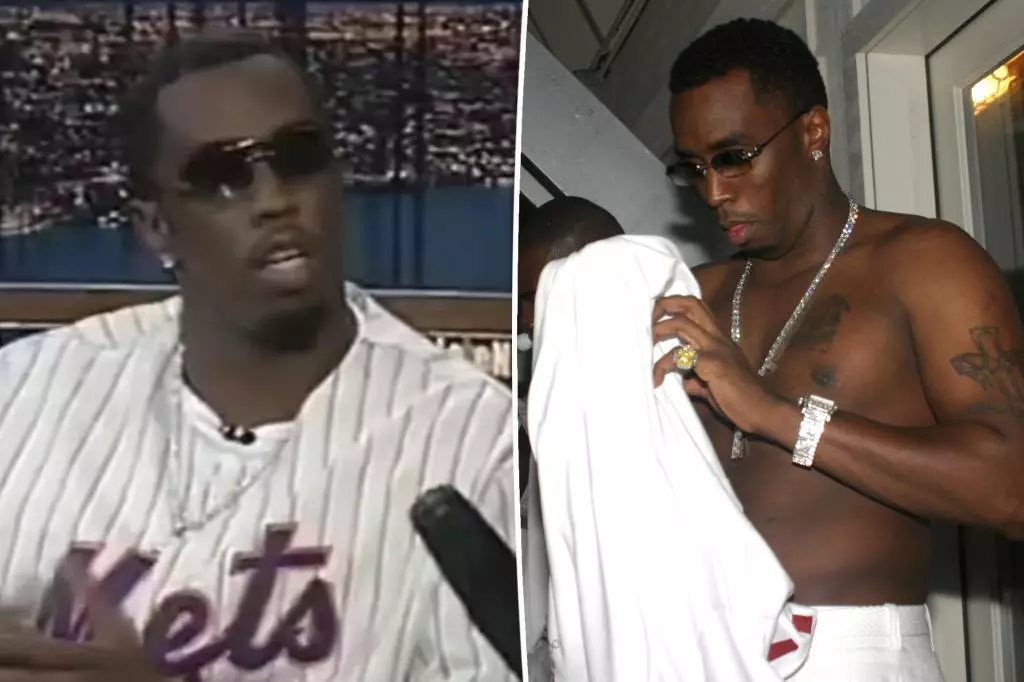The entertainment industry often encourages a culture of charisma and charm, where comments made in jest can swiftly spiral into serious scrutiny. Recently, disturbing remarks made by Sean “Diddy” Combs during a 2002 interview with Conan O’Brien have resurfaced, bringing to light not only his questionable views on women but also a disturbing coincidence with his current legal situation. In the interview, Combs jokingly suggested that one should “lock the doors” of a party to keep women from leaving, promoting an unsettling perspective on both party etiquette and women’s autonomy. As this footage comes back into focus, it raises critical questions about the implications of such attitudes, particularly as they relate to his ongoing arrest for serious charges including racketeering and sex trafficking.
While at first glance, Combs’ banter may seem harmless, it reveals deeper societal issues surrounding gender dynamics and power. By suggesting that women need to be “kept” at parties, Combs inadvertently endorses a mentality that objectifies women and reduces their presence at social gatherings to mere entertainment for men. This line of thinking is not just a relic of the past but a concerning reminder of the persistent attitudes that perpetuate gender inequality. In the wake of ongoing movements advocating for women’s rights and safety, such statements underscore the urgent need for cultural introspection and transformation.
Behind the Legal Troubles
The gravity of Combs’ legal troubles amplifies the weight of his past remarks. Facing charges of racketeering conspiracy and sex trafficking, Combs is accused of utilizing coercion and manipulation to exert control over women. Prosecutors allege that he cultivated a “criminal enterprise” designed to fulfill his sexual desires by threatening and abusing those under his influence. The allegations paint a picture of a figure who has long maintained a façade of triumph and glamour while possibly orchestrating behavior that contradicts those values. The juxtaposition of his light-hearted comments about women with these grave charges speaks volumes about the dissonance that often exists in celebrity culture.
As the public digests these developments, one must consider the role of media in shaping narratives around celebrities. Striking a balance between entertainment and social responsibility, the media plays a crucial role in either amplifying or challenging the problematic behaviors exhibited by public figures. The resurgence of Combs’ remarks serves as a reminder that jokes made in the name of entertainment can carry significant weight, shaping perceptions and potentially encouraging harmful ideologies.
Consequences and Cultural Reflection
Currently facing serious legal peril, Combs’ future remains uncertain. With accusations that carry severe penalties, the potential impact on his career—built over decades in the limelight—could be profound. Meanwhile, this unfolding story opens a wider dialogue about accountability in the face of long-standing societal issues. It is crucial that both media and the public engage in critical reflection regarding the behaviors and attitudes perpetuated by influential figures. Ultimately, challenging harmful narratives starts with acknowledging where they begin—whether through flippant remarks or more insidious actions—and striving for a more equitable culture moving forward.

Leave a Reply